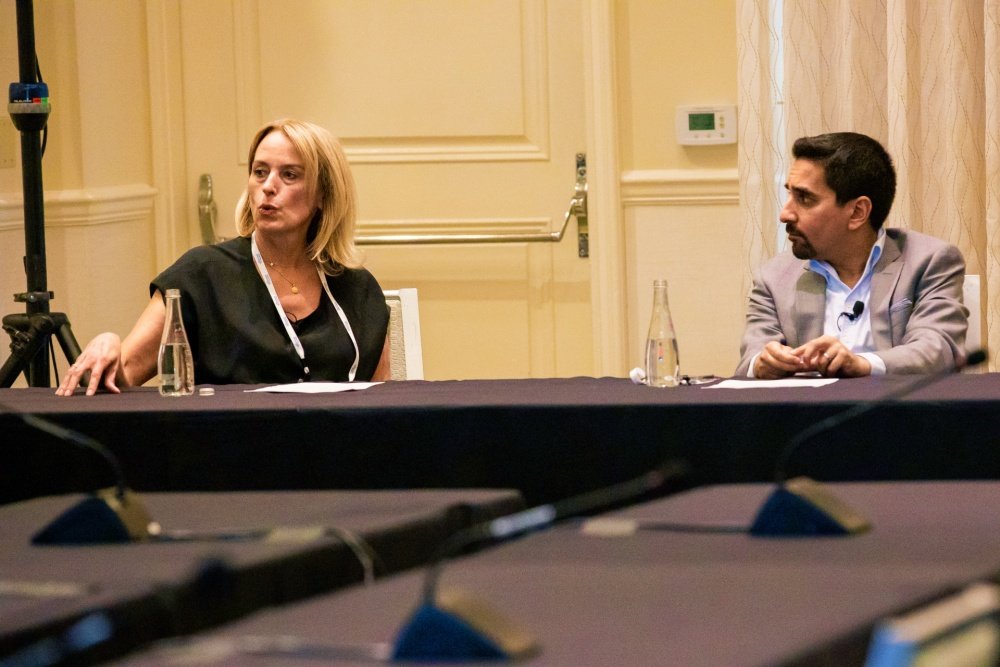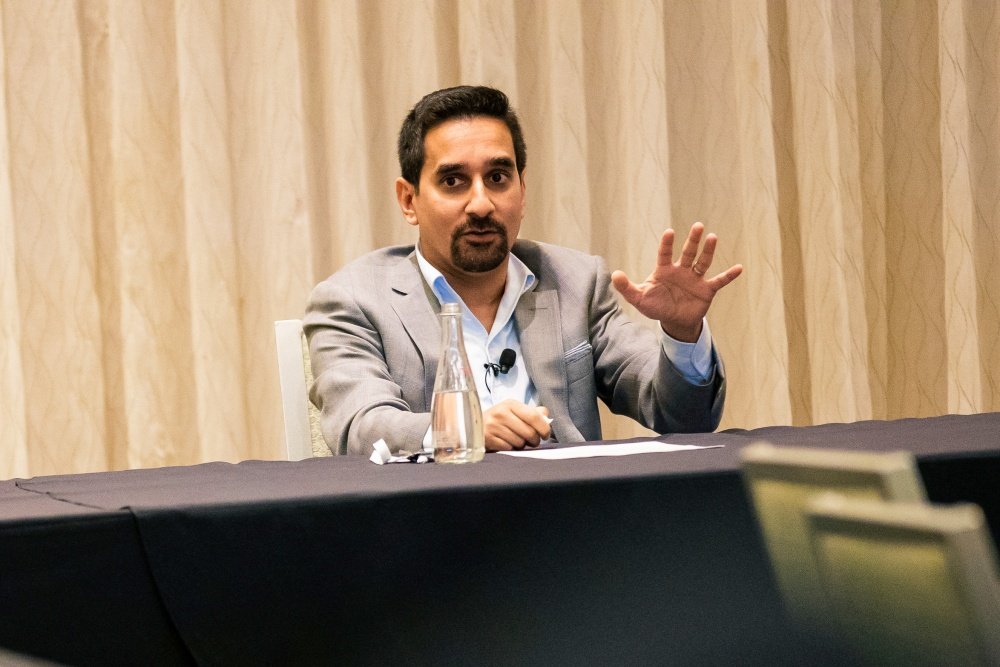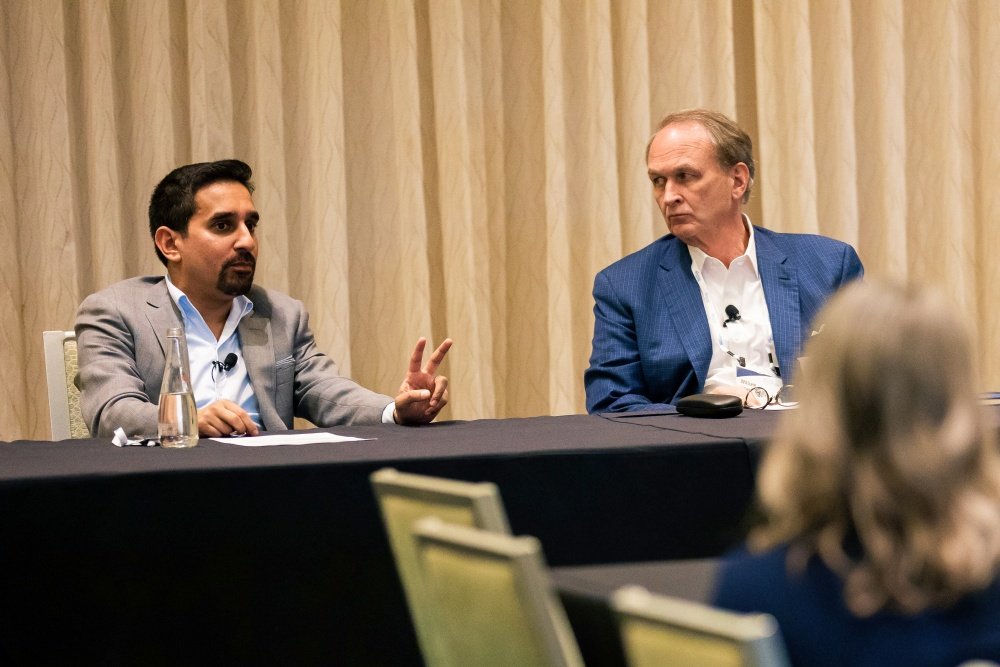A brass-tacks discussion during the Health Evolution Summit 2023 sponsored by Access Healthcare
Panelists
The panel discussion featured prominent industry leaders who shared their expertise on financial transformation in healthcare:
William Winkenwerder, Jr. - Chairman, CitiusTech, Inc.
Niyum Gandhi - Chief Financial Officer and Treasurer at Mass General Brigham
Kristen Murtos - Chief Innovation & Transformation Officer, NorthShore - Edward-Elmhurst Health
Moderator: Kumar Shwetabh - President and Chief Growth Officer, Access Healthcare, and CEO of Pacific Global.
The brass-tack discussion at the Health Evolution Summit 2023, a gathering of industry leaders, recently delved into the topic of financial transformation in healthcare. The panelists emphasized the importance of moving beyond mere survival and embracing innovative strategies to thrive in the ever-evolving healthcare landscape. This article concisely summarizes the panel's key insights, focusing on strategies such as addressing the nurse labor shortage, strengthening the supply chain, leveraging technology for cost reduction, adopting alternative payment models, improving price transparency, and fostering collaboration.
Nurse Labor Shortage
One of the critical challenges in healthcare is the shortage of qualified nurses. The panel highlighted strategies to address this issue, including investing in nursing education and training programs, leveraging technology to alleviate nurse workload, and fostering collaborations between healthcare organizations and educational institutions. These efforts aim to ensure a skilled nursing workforce that can meet the growing demand for healthcare services.
Supply Chain Issues
The COVID-19 pandemic exposed vulnerabilities in the healthcare supply chain. The discussions emphasized the need to strengthen supply chain strategies using technology, data analytics, and collaborations with suppliers, manufacturers, and distributors. These measures improve inventory management, enhance supply chain visibility, and enable proactive responses to disruptions. Innovative supply chain practices enhance patient safety, operational efficiency, and mitigate risks associated with disruptions.Leveraging Technology for Cost Reduction
Technology emerged as a crucial factor in achieving financial transformation in healthcare. The panelists unanimously emphasized the role of automation, artificial intelligence (AI), and other cutting-edge technological solutions in streamlining operations, reducing costs, and enhancing overall efficiency. For example, adopting backend automation tools can eliminate manual processes, significantly improving productivity and operational efficiency. Integrating AI and machine learning algorithms enable data-driven decision-making, resource optimization, and revenue cycle management.
Embracing Alternative Payment Models
The panel highlighted the urgency of shifting from the traditional fee-for-service model to alternative payment models in healthcare. Value-based care emerged as a prominent alternative payment model, aligning financial incentives with patient outcomes. Healthcare organizations can improve patient outcomes, reduce healthcare utilization, and control costs by prioritizing preventive care, chronic disease management, and care coordination.
Improving Price Transparency
The discussions emphasized the importance of pricing transparency in achieving economic transformation. Increased access to information empowers consumers to make informed decisions about their healthcare choices. Pricing transparency drives competition among healthcare providers and encourages fair and competitive pricing structures. Rationalizing pricing models and collaborating with payers to establish transparent reimbursement rates is vital for healthcare organizations.
Collaboration and Continuous Improvement
The panelists stressed the significance of collaboration among healthcare providers, payers, and stakeholders to drive positive change. Organizations can leverage collective expertise and resources by sharing best practices, developing innovative solutions, and aligning goals. Furthermore, continuous improvement through technology adoption, data utilization, and innovation enhances efficiency, reduces costs, and improves patient outcomes.
Conclusion
The panel discussion highlighted the need for financial transformation in healthcare beyond survival. Strategies such as addressing the nurse labor shortage, strengthening the supply chain, leveraging technology, adopting alternative payment models, improving price transparency, fostering collaboration, and embracing continuous improvement can lead to sustainable financial well-being while delivering exceptional patient care. These strategies allow healthcare organizations to thrive in the dynamic healthcare landscape.
To delve deeper into the panel's discussions and gain a comprehensive understanding of the topic, we would like to invite you to download the full article. Explore the detailed insights shared by industry leaders, learn from real-world examples of successful financial transformation, and discover the crucial elements that can shape the future of healthcare.






